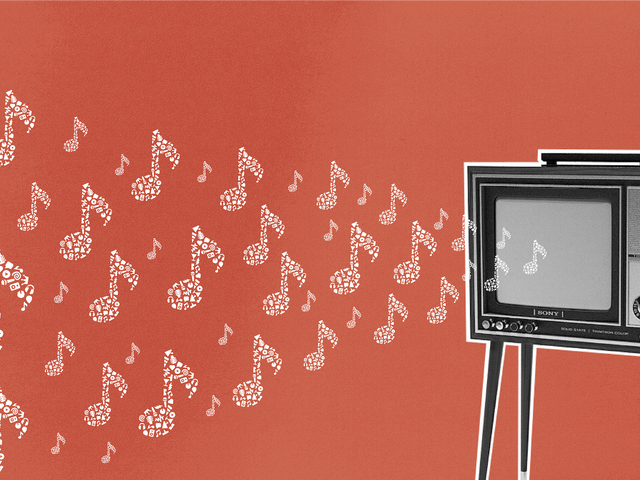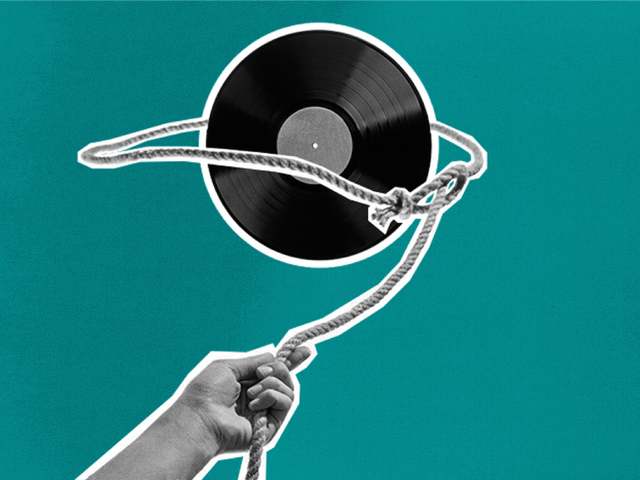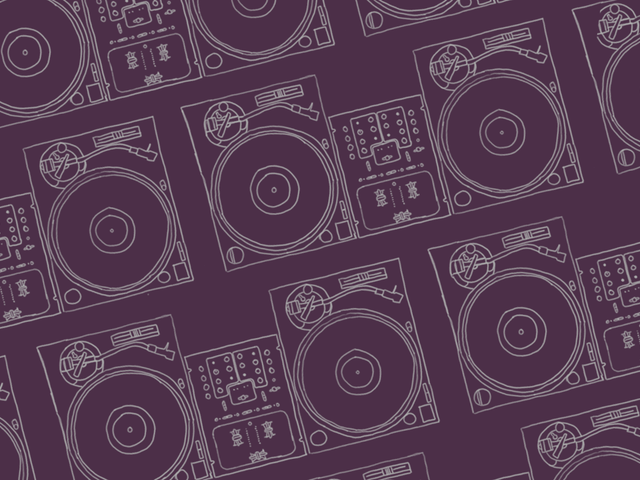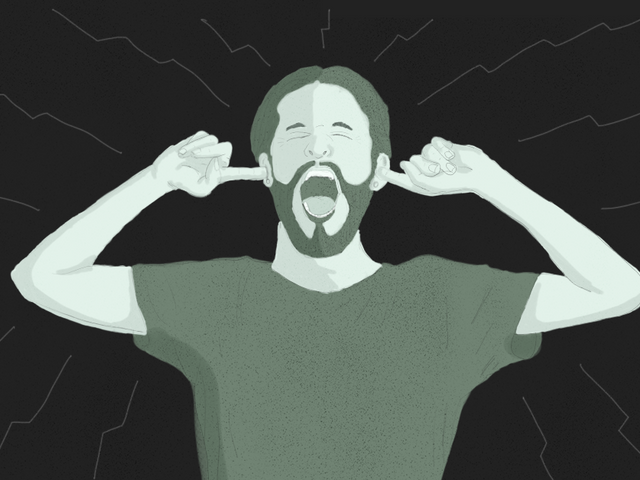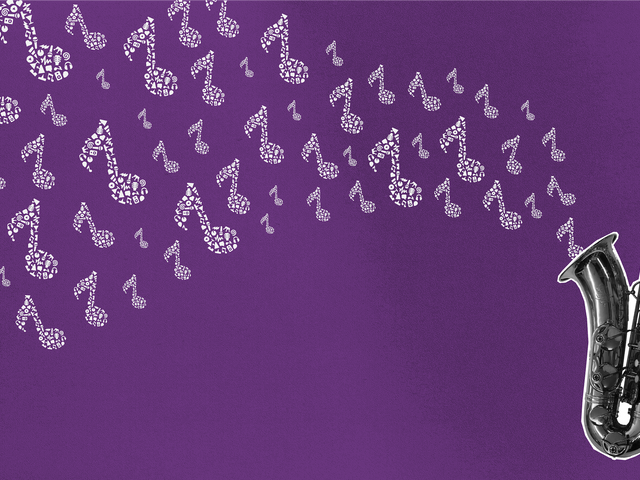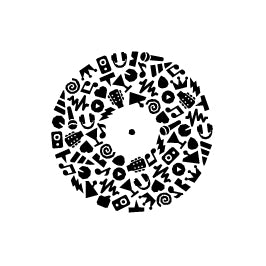Vuoden 2017 parhaat albumit
Laskemme alas 30 albumia, joista pidimme eniten tänä vuonna
Viime vuonna avasin vuoden 2016 parhaita albumeja käsittelevän listan esseellä siitä, kuinka olin iloinen siitä, että genreprovinsialismi oli kuolemassa. Että vuonna 2016 (ja 2017, tietysti) ei ollut mahdollista teeskennellä, että kaikki parasta musiikkia, jota oli saatavilla tietyssä vuodessa, olisi peräisin yhdestä ainoasta musiikkigenrestä.
nTänä vuonna, kun katselen meidän 30 parasta albumia vuodelta 2017, jotka on koottu VMP-henkilökunnan ja joidenkin kirjoittajiemme äänestysten perusteella, erottuu yksi asia - genrehyppelyn lisäksi - se, että vaikka vuonna 2017 ei ehkä ollut selvää, kriittistä konsensusnumeroa yksi albumia - tai ainakin sellaista, josta Rolling Stone, Pitchfork ja Spin jne. voivat sopia - oli suurempi prosenttiosuus albumeista, joilla oli upeaa kuin useimpina vuosina, joita muistan. Mutta mietin myös, että samalla kun genreprovinsialismin päivät ovat vähenemässä, onko albumilla mahdollisuus kelpoisesti väittää paikkansa - kuten esimerkiksi My Beautiful Dark Twisted Fantasy teki 2010 - suurimpana, suuren A-albumina tuona vuonna myös hävinnyt.
nKoska suoratoistopalvelut ovat antaneet meille kaikkea koko ajan, ne myös tekevät meidät tietoisemmiksi uusista julkaisuista kuin koskaan ennen. Ja koska albumit eivät vuoda kuten ennen - mikä on hyvä asia, mitä mieltä olen - saamme kaikki uudet albumit samaan aikaan. Tämä tarkoittaa, että joka viikko on kilpailua arvioida, mikä on uutta ja mihin kannattaa käyttää aikaa. Ja koska joka viikko Apple Musicin ja Spotifyn kärjessä on uusi käänne, on vaikeaa olla tuntematta, että jää mistä tahansa paitsi, jos vietät toisen viikon palvomassa nyt vanhaa uutta albumia, jonka mielestäsi on mahtava. Joten asiat kasaantuvat henkisesti siihen, mitä olet pitänyt, ja sitten siirryt näyttävään uuteen asiaan. Albumin säilyvyys listoilla, sydämessäsi ja jonossa on pienempi kuin koskaan ennen.
nJollain tavalla kuitenkin tämä uusi todellisuus tekee listoja kuten tämä – ja kaikesta muustakin vuoden 2017 parhaista albumeista, joita olet lukenut tänä kuukautena – tärkeämmäksi. Koska olen aina katsonut näitä mahdollisuuksina oppia, missä joku / joku paikka sijoittaa albumit, jotka he pitävät tärkeinä, ja käyttää niitä omana reittikarttana albumin uudelleenarvioimiseksi, jota olen ehkä vain suoratoistanut puoliksi. Melu vain voimistuu; päästäkäämme siis eroon pinnallisesta melusta puolestasi ja autamme sinua nauttimaan vuoden 2017 musiikista uudessa valossa. Nämä 30 albumia ovat niitä, joita pidämme parhaimpina tässä loputtomassa uuden musiikin myrskyssä. --Andrew Winistorfer
The fourth album from Denver soft-rockers Tennis is their finest yet, a distillation of sunny '70s pop, Fleetwood Mac, and Laura Nyro into a breezy album that sounds like the trip to Mexico they took to make this album. That calm exterior masks words that cut deep though; Alaina Moore’s lyrics are centered around the tension that comes from giving yourself over to someone else in a relationship and the calculations you’re constantly making about your own thoughts and feelings.--AW
Chris Stapleton’s From a Room series delivered on all the expectations that built up after Traveller made him into the unlikeliest of country stars in 2015, and was also able to sidestep them, by diffusing the follow up album pressure by stacking these two albums with tender covers (Pops Staples “Friendship” and Willie Nelson’s “The Last Thing I Needed” are the finest) and well written dioramas like “Drunkard’s Prayer” and “Simple Song.” Stapleton doesn’t get enough credit for kicking ass--”Midnight Train to Memphis” is harder than any “rock” song in 2017, full stop--but these two albums offer all of his sides in all their perfection.--AW

Ibeyi, a French-Cuban musical duo consisting of 22-year-old twin sisters Lisa-Kaindé Diaz and Naomi Diaz, have been buzzing under the surface since their 2015 self-titled debut. Their unique, enticing mix of electro-soul, hip-hop and a fusion of West-African rhythm gained them instant attention. On their second release, Ash, they’ve sharpened their rawness and production, and made something truly bone-chilling. It’s a dive into the ebb and flow of capturing fleeting empowerment in the middle of oppressive forces. “The measure of any society is how it treats its women and girls,” Michelle Obama repeatedly says in a sample on “No Man Is Big Enough For My Arms,” a trance-like mantra of a track, representative of the bridge Ibeyi build between their music and the ash of society.--Amileah Sutliff

Though gridlocked in the TIDAL wave like many a project, hearing the man still have it was refreshing to say the least. No I.D. put on a soul clinic and thrust it to the mainstream again: a statement in itself, given sampling feels more like a luxury item when you can afford to remix Nina to talk (down?) about investments and racism. Hov admitted to his time with Becky, took his chip shots at the young bucks, and found time to float when he wasn’t focused on keeping up. The latter point gave us the most hope: “Marcy Me” is like a brisk walk through Brooklyn, completed by “Legacy” and its lingering damnation in the wake of family sins. For the first time in a long time, we got a Hov album worthy of discussing for its content rather than its delivery.--Michael Penn II
There were few pleasures finer this year than driving around listening to “Cash Out,” a roller rink jam from this album, which featured a jheri-curled ScHoolboy Q having the time of his life while ceding the chorus to PARTYNEXTDOOR and D.R.A.M. Oh wait, there was a finer pleasure. Driving around listening to the neon-in-the-bloodstream “Rollin’,” a duet between Future and Khalid partially about driving around thinking about old loves. Oh wait there was a finer pleasure than that. It was driving around listening to “Slide,” the lead single from this album that features maybe the most jocular Frank Ocean performance ever, and the Migos playing his trap Pips.
You get the point.--AW

The quintessential millennial boyband rose from the ashes of a Kanye forum to put a battery in the back of America’s teenagers. They moved into the hood, built a makeshift movement in real-time, and delivered a trilogy of captivating flashbang pop-rap. Though the group got its legs off the parlayed clout of Kevin Abstract, this is no sum-of-its-parts effort: everyone involved functions best as a unit, checked and balanced on all cylinders. While the first SATURATION dragged while delivering a few sleepers, the second gave a bombastic hit parade showcasing unbelievable growth within the same year. The BH project takes the quality of an experiment-in-progress and the high-level intrigue has forced them to deliver time and again. They’re calling for an ending; they’re likely trolling. But no matter how long the high, it’s a beautiful time packed with something you’ll find worthy of another spin.--MPII

It’s been a long time since I’ve cared about going to a rock show in any meaningful way. The additional stressors of my later 20’s turned me into an agoraphobe rather than helping me find the nostalgic release I found there in my early 20’s and there was a year or two where the idea of non-tax-paying 20 year olds rage sweating into my beer and button down gave me hives. That changed instantaneously though when I heard the first track from You’re Not As _______ As You Think. The guitar hook on “No Halo” is everything I have ever loved about rock music and hearing a band in 2017 working out their existential angst with a healthy dose of fear and trembling left me realizing they were sort of a harder version of Julien Baker. I’ve accepted the fact that I will always have deep issues with reality, we all do in our own ways. Listening to Sorority Noise voice the tension between acceptance and the durable rawness of the nerves was, ironically, incredibly uplifting and helpful and their show in Denver was my favorite of the year.--Tyler Barstow
With so many headlines over the last few years referencing Rostam as the guy who left Vampire Weekend, it’s refreshing to see the volume and frequency of his contribution to music continue to pick up momentum so that the “Ex Vampire Weekend” notes become the least notable thing about him. 2016's collaboration album with Hamilton Leithauser-- I Had A Dream That You Were Mine--was very nice, production credits for Frank Ocean, Solange, and your favorite tracks from the latest HAIM album since then don’t hurt, and this years breakout solo album Half-Light prove that we’re just scratching the surface of Rostam Batmanglij’s far reaching range and talent. Half Light plays as a very personal record, but still packs plenty of energy and doesn’t take itself too seriously -- all things that are easy to appreciate in 2017. --Levi Sheppard
As part of a genre that’s always reaching back into time for inspiration, new folk releases often run the risk of falling behind, musically. This often means folk releases that slip through the cracks, even the good ones. The balance between finding relevancy and freshness as a folk artist while still upholding folk sound and tradition is a tricky one that Aldous Harding mastered with Party. She takes risks. Her lyrics toe the line between surreally poetic and confessional and her unique voice is capable with any and all experimentation she throws its way. Combined with a modern sonic landscape of horns, drum machines and distant sound, she made something uncannily eerie, chilling and tender. --AS

“We have Trump, we have Brexit, we have our issues in Iceland, we have our environmental issues…I think if there ever was an urgency or necessity to come up with another Utopian model, how we’re going to live our lives, I think it’s now, and [these are] my proposals,” Bjork said in a Facebook Live in September discussing Utopia. Bjork made Utopia following her dark 2016's Vulnicura, which catalogued the devastation of a tumultuous split with her long-time partner and father of her child. But along with documenting her personal healing, Utopia is her hopeful portrait of what we, as a society, can be. With co-production from Arca--bringing his unparalleled vision of the capabilities of sound in the digital age-- Utopia became the heaven-like foil to her last year’s emotional ruin. It’s the clarity of opening the windows, airing out old, suffocating air, and creating a space for light to come in.--AS

When I interviewed Michelle Zauner for Emmie magazine, she said, in regards to language behind her new album, “Your small, personal pain is like a soft sound, from another planet that no one else thinks about except for you.” In Soft Sounds — part concept album, part personal catalogue — Zauner creates a parallel between the sci-fi notion of exploring another planet and the deeply intimate process of exploring new emotional terrain. It’s abstract and metaphorical, in a way, but remains the antithesis of pretension. Her ability to take innovative concept — both lyrical and audible — and make it approachable makes the album intriguing whether it’s your first listen or your 200th. It’s a master blend of synth, her signature shoegaze, adventurous soundscape crafting, and hints of ‘80s-esques grandeur that buttresses a literary take on everything to road head to unconditional love.--AS

Thundercat, like his colleagues in the Brainfeeder brain trust, is at his best when the absurdity shines as bright as anything beautiful. Drunk succeeds in that fashion by leveling otherworldly jazz technique with outrageous takes on mundanity. It’s free jazz that’s in on your masturbation routine, reminds you what you left at the club, and reminds you to turn your goddamn phone off. As we descend into madness, Thundercat delivers the seasoned soul: one-part voice of reason, two-parts homie on the couch; the couple homies he invited over speak their piece, even Wiz Khalifa when you don’t really expect him to show up. Consider this record as your life’s narration, every crackpot theory and awkward moment tucked within the basslines.--MPII

The first album in six years from Fleet Foxes is named after a devastating F. Scott Fitzgerald essay that’s about the writer’s mental breakdown following his alcoholism and early success with The Great Gatsby, where he’s taking stock of what he actually wants in life, and whether or not he thinks writing is even worth it anymore. That specter hangs over Crack-Up, which was written after a hiatus chief Fleet Fox Robin Pecknold took at Columbia University, where he enrolled after taking stock of his life, and not being sure if he wanted to make music his life anymore. Wars external and internal, and the fraying of relationships, serve as the main force of Crack-Up, the most sonically daring album from Fleet Foxes yet. Luckily for us, Pecknold decided making music was worth it.--AW

To appreciate the new bloom of Tyler Okonma’s artistry, consider the omission of “Scum Fuck” from the original title as a shedding of what once was. The juxtaposition of Tyler’s not-so-distant past - a movement undeniably built on a boyhood tour of rape-cultured rap - with the present unveiling a gentler being, camouflaged underneath the reckless abandon. This time, Tyler salvages his recklessness for better, offering the most reformed and refined work of his career. He finally blends his influences into his sound, maintains an ear for meeting his collaborators in their elements, and he remains a good rapper when he tries hard enough. He’s also as messy and complicated as ever; thankfully, he builds from himself rather than destroying everything in his wake. Play “911” and form a Soul Train line, play “Garden Shed” if you’re facing your own closet, and run “Where This Flower Blooms” to water your garden and stunt.--MPII

No Shape is a comprehensive work of art, an ode to the depths love’s capable of reaching. Unlike the music that often aims to capture the deepest form of love, No Shape isn’t gushy, nor does it mask the fear, trials, vulnerability and absolute absurdity that comes with giving all of yourself to someone. Informed by Mike Hadreas’ long-term relationship with his partner and collaborator, Alan Wyffels, the album’s lush and blurry mix of piano, strings, and a complex weaving of synths is the most atmospherically expansive works to come out this year. “Slick, sheen so bright it's a bother / You are cultivating grace / They're rough / Smother them with velvet / For child, you walk,” he sings on “Just Like Love,” a tender ode to a video he saw of a young boy freely dancing around his house wearing a dress. It isn’t just an album about love; Hadreas’ trademark examination of life and all of its emotional nuances, often through a lens of queerness, still stands. But, on this album, the bittersweet lightness that accompanies it is nothing short of beautiful.--AS

In his first moment as a leading man, Sampha Sisay delivered years of profundity in a compact ten songs of triumph and turbulence. From the grandest bass drop on “Reverse Faults” to the startling intimacy of “No One Knows Me (Like the Piano,)” this piece belongs in a pantheon reserved for the year’s most arresting soundtracks for the brink of our chaos. I can attest to its powers: arriving in January, on the brink of my 23rd birthday and the election of the 45th, I remember staring at the floor in the Chicago Greyhound terminal, tuning into Sampha’s pain as if mine were on the same frequency somewhere else. That’s to say, Process is a record that will remain by your side in times of desperation and remind you to revel in surviving the thick of the whole thing.--MPII
An expert in translating nostalgia to a fierce future, Kelela spends the runtime of Take Me Apart channeling her ‘90s inspirations to satisfy the void and rekindle the feeling. Well into her 30s, she breathes inventive life into a stunning reboot of the classics in the spirit of Aaliyah and Janet. Kelela loses and rediscovers herself between mere moments; a collection of love songs and life lessons finds her well-acquainted with love in every language. Her voice floats euphorically across a digital playground, clinging to a loose narrative of what her love means, how it shifts within oneself and with others, and how all the pieces of her Black queer womanhood exist together to navigate it all.--MPII
An ode to the unique energy, mania and loneliness that is inherent with life in the modern American city, City Music is Kevin Morby’s “New York Rock Record” counterpoint to the more rustic environs of his 2016 breakthrough, Singing Saw. Packed with songs about solitary wandering (“Dry Your Eyes,” “Downtown’s Lights”) and how music can be your companion (“1234” and “City Music”), along with some of Morby’s best songwriting (“Crybaby” and “Pearly Gates”) City Music is the album Morby’s been working towards since he went solo.--AW
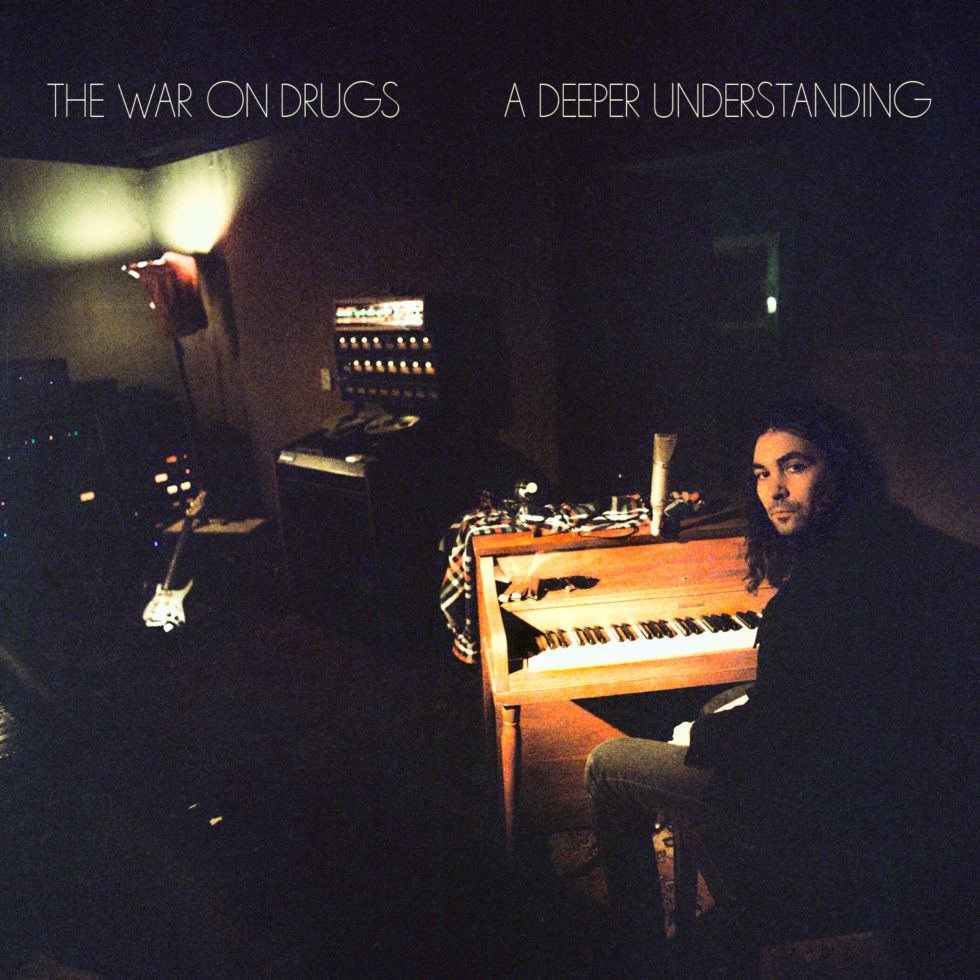
A band named after a horrible domestic boondoggle that makes hi-def, widescreen rock that is like a stew of Tom Petty, Steve Winwood, and U2, is maybe the least likely major label rock band of the 2000s, but here War on Drugs are, with their major label debut (they signed to Atlantic). There’s no concession made here to any commercial concern; the highlight and lead single “Thinking Of A Place” is 11 minutes of wheatfield sprawl that is a perfect encapsulation of why War on Drugs are one of the best rock bands left standing. This album is like flying across the steppes on the back of a winged horse.--AW

After the band’s five year “hiatus,” LCD Soundsystem came back with an album that was going to either galvanize or taint their legacy as a band. What we got was one of the heaviest, goth-leaning and emotional LCD Soundsystem albums ever recorded. The album reads as a diary entry chronicling the stress of a high-profile breakup, the boredom of five years of feeling creatively impotent, and the anxiety of trying to win back public perception. This album gave us the best surprise of all with “how do you sleep?” - the most driving and honest song the band has ever recorded.--Alex Berenson

In an indie rock landscape where self-reinvention has been the name of the career-extending game over the last six years or so, the National have maintained a refreshingly consistent identity. Their evolution has been fueled by their roots going deeper into the same creative soil they came up in as opposed to experimenting with the wonky variety of chemical additives and transplant operations that have left some of our indie rock heroes coming off as a group of dudes unable to let go of the fact that they’re never going to be Kanye West. Sleep Well Beast is, for my money, the best album we’ve had from the band since Boxer, and the maturation here finds them leaning less on clever turns of phrase and Devendorfian drum licks and more on a minimalism that tends towards silence and a brutal honesty about the naked vulnerabilities of unironic pain. We’ve always loved the National for the way they’re able to say the things we feel but can’t express, and after Sleep Well Beast, we’re also able to love them for their humanity in a more articulate way.--TB

Nightmare Logic opens with a thunderclap, and things only get more tempestuous from there. The Dallas bashers crossed over to non-metal heads in a big way this year, but not because they made some classic rock concessions or because they have a catchy single; their forceful, totemic attack is impossible to not be swept up in. This was my premiere backyard grilling album of 2017; my retired neighbors who initially greeted my choice in metal on a Sunday afternoon in July with cringes ought to be able to play the tabs to “Executioner’s Tax (Swing of the Axe)” by now.--AW

Adrianne Lenker’s lived an unconventional life, to say the least. Born into a religious cult and moving a lot growing up, Lenker glues together vignettes of her memories with more poetic intuition than most indie songwriters making music right now. There’s a foggy cinematic quality to the entire album, not necessarily due to dramatic sonics, but in Lenker’s ability to make a convincing scene. Despite their intimacy and personal nature, they’re opaque enough to place yourself into directly into the emotion of the song. Her voice — a rich, gravel-y whisper you want to lean in closer to — mixes with the depth of the album’s textured guitar sonics, the result of is a haunting, but warm and impossibly moving work of musical literature.--AS
If Sampha made me stare at the floor and get my life, Moses Sumney made me stare at my heart and ask what it desires… for me, and no one else. Aromanticism is the ellipses at the end of a sentence, a series of questions after a short story where we don’t get an ending. In just about a half-hour, Moses crafted a universe of magic and tragedy, wandering through the void even when this moment don’t feel that deep. Even when the stress is dramatic, he’ll woo you into intimacy while requiring you bring nothing but yourself to the table. Yet when you arrive, remember that you’re all you need at the table if that’s what you wish. Not enough love stories end that way.--MPII
Julien Baker's Sprained Ankle made her an underground darling with a burgeoning audience, which is something she never accounted for: she made that album as therapy, dealing with a loss of faith, a private meditation on her own emotional damage. Turn Out The Lights, her first for Matador, obviously has higher stakes, but it doesn't change why she's making music: this album is as much of a raw personal exorcism as her last, but here she's asking god to repair her ("Happy to Be Here"), and ultimately deciding that she wants to live ("Claws In Your Back"). There was no better album in 2017 to cry along to than this one.--AW

On her second album, Lorde guts pop music from the inside and challenges the notions of what a pop song can structurally and emotionally be. At 21, she captures the hedonistic, manic, and often self-destructive tendencies that accompany being young and figuring your shit out. It’s a breakup album, a love album, a declaration of self, a list of insecurities. Smoky vocals and angsty percussion weave their way into a common lyrical thread of an impending explosion (“Blowing shit up with homemade dynamite” or “Broadcast the Boom Boom Boom, and make ‘em all dance to it”) lends itself emotional anticipation for a climatic burst. But unlike conventional pop tracks, there’s a building tension that’s never quite released in the chorus. Instead, the releases are hidden and far and few between, but all the more rewarding. And despite the lack of audible blow, there’s a train-level impact of every line. It’s confusing, relieving, exciting, crushing, fucking insane — everything a chronicle of young adulthood should. From start to end, she concisely portrays a whiplash of this messy elation of a life stage.--AS

Yes, the social media histrionics are obnoxious. Yes, he treats every interview as some kind of sparring match with himself over how annoying he can be. And yes, the middle of this album has an 11-minute meditation on how miserable indie rock stardom is.
But more than any indie rock album this year, Pure Comedy is concerned with how we’re living now; saddled to phones, trying to score meaningless points on social media while strapped into our VR headsets, drifting aimlessly against what made us the dominating force in earth’s history in the first place. Josh Tillman can’t make simple folk songs anymore, and he can’t spend his time writing for Lady Gaga (as he did on Joanne); he’s too busy worrying about the fate of the world, and whether any of this matters. Pure Comedy ends hopeful, but ultimately, we all might just be as clueless as we came.--AW

The K.Dot album cycle goes as follows: tease a few singles, drop the classic (and have everyone acknowledge it so,) and disappear to meet the insurmountable pressure of topping whatever he just did. This time, the blockbuster (with rumors of a sequel that never came true.) We’ve never heard Kendrick Lamar more on the radio. He mostly eschews narrative for feeling and takes risks within conventional frameworks. Picture the way he glides through “LOVE.” to how out of place he felt on “Fuckin’ Problems.” He pulled “HUMBLE.” off to the point where the whole world sang in unison about his stroke game. Hell, it felt like most folks thought the U2 feature would be certified cornball and he managed to get a good appearance without forcing it onto iPhones worldwide. DAMN. won’t go down as Kendrick’s best, and it won’t matter because it features a conquering of the one feat he’d yet to master: the world stage, in all its trappings.--MPII
Masseduction was billed as the "pop" St. Vincent album, which, thanks to the production by Jack Antonoff, is only marginally true. Really, the strength of Masseduction is that it feels like a career compendium; everything you liked about Annie Clark on her past albums--the tender ballads ("New York," "Smoking Section"), the guitar pyrotechnics ("Pills," "Los Ageless"), the witchy in-betweener ("Young Lover," "Savior")--are filtered and refined into this new, different album. This is the best St. Vincent album yet; a bewitching, exceptionally composed reaction to the trappings of drugs, fame, and getting laid.--AW

SZA said what we were all thinking for 49 minutes. Detailing the glories and shrapnel of sexual freedom and youth in 2017, Ctrl is the R&B bible of our generation. With features from the likes of Kendrick, Isaiah Rashad, and Travis Scott, first listen addictive hooks, and instrumentation this expansive, Ctrl was too big to fail right off the bat.
But considering it’s her first studio album, the scale of SZA’s breakthrough is an anomaly. For an album to take off the way Ctrl has, it has to strike one hell of a chord. Alongside her gripping, silky voice and unreal digital goosebump sonics, she unearthed resonant and unspoken Truth — especially among any woman that’s dated recently — without pretension and built out of the bricks of her own life.
Before releasing Ctrl, she told Entertainment Weekly, “Right now we’re in such a state as Americans, as a society, that we don’t want to deal with anything that’s uncomfortable. We don’t want to deal with any of our ugliness. I’m just getting ugly. All my dirty laundry is on the line.” No one wants to admit they stayed with someone just because “the dick was too good.” Or that they fucked their boyfriend’s best friend out of spite. Or that they hate their ex’s new boo because they’re “perfect.” Or that they wrote an entire (incredible) song dedicated to their pussy. But odds are, you’ve experienced something along the same lines of SZA’s dirty laundry. Maybe you even have the same pair of pants out on the line.
Following its release came accusations (from men) that SZA fucked her way to the top or that she’s just a “side chick” or that all it does is bash men. These reactions just support the thesis of Ctrl: Men are trash. The fact that people came out of the woodwork to criticize SZA for the same shit that men have been doing and bragging about proves the necessity of an album like this for years, especially in 2017.
But it’s not all drama and lamentation. With its truth also came an unbelievably portrayal of herself as a real, complex black woman. “I feel like people simplify black women to just an attitude, like we don’t take no shit. But there are so many emotions, so much fear and pressure, so much pride. We need to tap into that shit,” she told Pitchfork. Adhering to honesty and complexity, Ctrl isn’t all just the drama and lamentations of modern youth and relationships, it also captures how fun and exciting it can be. The high of indulgence is part of what makes this album so addicting: “I'm really tryna crack off that headboard and bust it wide open for the right one,” she grins on “Doves in the Wind.” Or “Lately you've been feelin' so good I forget my future, never pull out,” she confesses on “Prom.” The album’s conclusion “20-somethings” wraps up the dichotomy of toeing the line between implosion and elation: “Hoping my 20-somethings don’t end...Hoping these 20-somethings don’t kill me.” With any luck, and help from SZA, we’ll probably all make it out alive.--AS
Related Articles
Liity kerhoon!
Liity nyt, alkaen 44 $Exclusive 15% Off for Teachers, Students, Military members, Healthcare professionals & First Responders - Get Verified!
